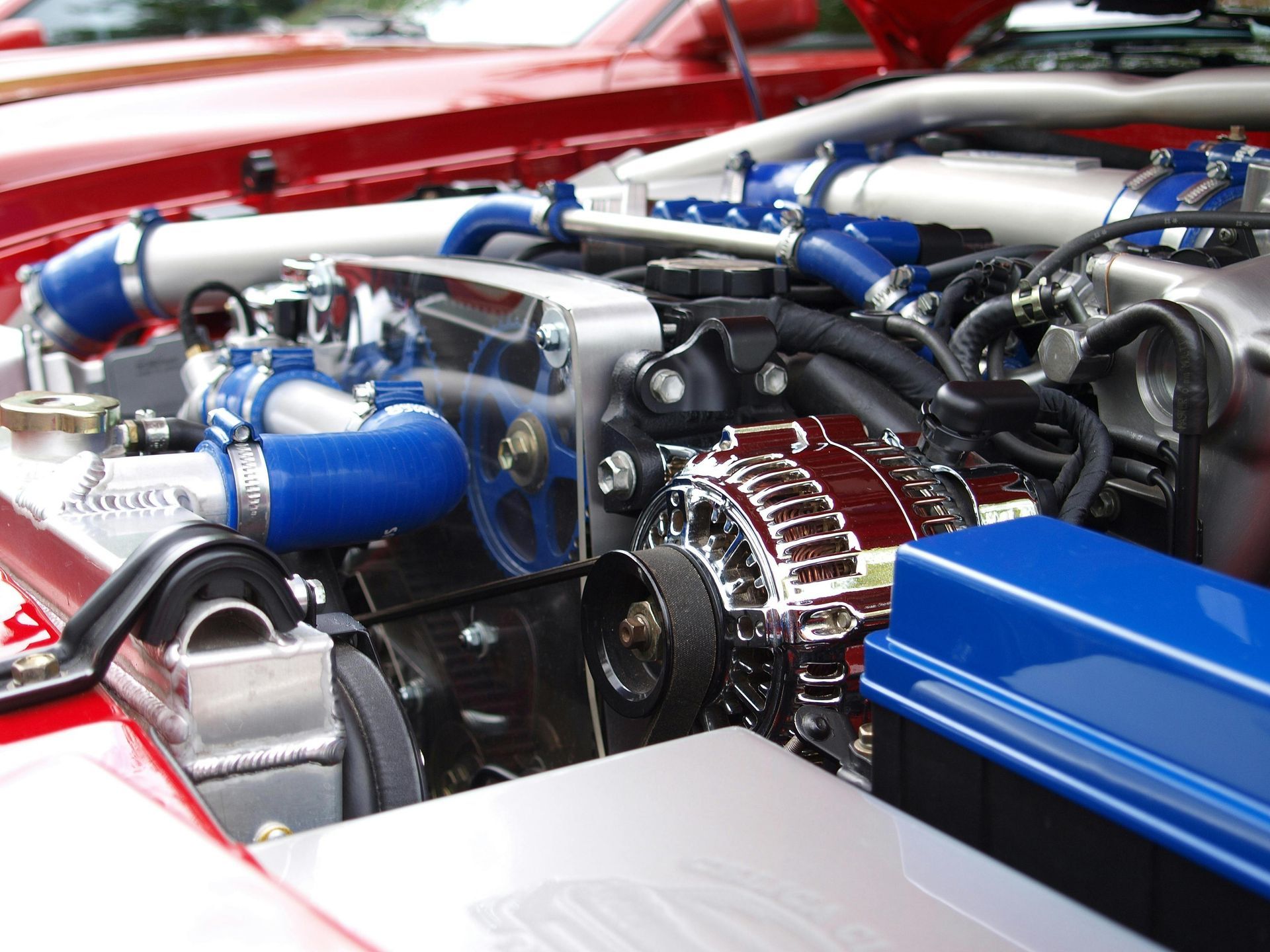Common Auto Body Repair Scams to Avoid
Navigating the world of auto body repairs can be a daunting task, especially with the lurking worry of falling prey to scams. It's a widespread issue, affecting countless car owners globally. In this comprehensive guide, we'll shed light on the most common auto body repair scams, equipping you with knowledge to steer clear of them. Our aim is to make you an informed vehicle owner, not just a cautious one. Remember, knowledge is power, especially when it comes to protecting your precious vehicle from unscrupulous practices.
Understanding Auto Body Repair Scams
The concept of an auto repair scam might seem straightforward – you get charged for work that wasn't needed or done poorly. But, it's often more complex than that. A scam in the auto body repair world can range from overcharging and unnecessary repairs to using substandard parts. Recent studies indicate that auto repair scams are not just occasional misdeeds but a significant concern in the automotive industry. Knowing what to look out for is your first line of defense.
We'll break down the technical jargon and give you a clear picture of what these scams look like in real life, along with a handy checklist of red flags to watch out for.
Common Types of Scams in Auto Body Repair
Auto body repair scams can take many forms. Here, we'll dive into some of the most prevalent ones you should be aware of:
- The Classic Overcharge:
It's the oldest trick in the book – charging more than what's fair. But how do you know what's fair? We'll get into that in a bit.
- Unnecessary Repairs:
This scam involves convincing you that your car needs more work than it actually does. It's a deceitful way to inflate your bill.
- Substandard Parts: Some unscrupulous repair shops might use inferior parts while charging you for premium ones. This not only affects your car’s performance but can also compromise safety.
We'll explore how these scams have evolved and how modern technology can both aid scammers and help prevent scams. Plus, we'll discuss how to stay a step ahead of these deceptive tactics.
Overcharging for Repairs: How to Spot and Avoid
Overcharging is a common concern in auto body repair. But how do you tell if you're being overcharged? Here are some tips:
- Get
Multiple Quotes:
Always shop around and get estimates from different repair shops. This gives you a baseline for comparison.
- Know the Market Rates:
Having a basic understanding of what typical repairs should cost is invaluable. There are online resources available to help with this.
- Demand Detailed Invoices: A reputable repair shop should provide itemized invoices that clearly explain what you're being charged for.
Bonus Note: To help you further, we'll provide a guide on average costs for common repairs. This will be your benchmark to spot overcharging.
Unnecessary Repairs: A Common Trick
One of the trickiest scams to detect is the unnecessary repair. Here's how to safeguard yourself:
- Understand Your Car's Needs:
Having a basic knowledge of your car's maintenance schedule can prevent falling for this scam. Know what needs fixing and when.
- Seek a Second Opinion:
If a repair seems unnecessary, don't hesitate to get a second opinion from another trusted mechanic.
- Regular Maintenance: Keeping up with regular maintenance reduces the chances of unexpected major repairs, which scammers often exploit.
Bonus Note:
Equip yourself with basic car maintenance knowledge. There are plenty of resources and courses available that can turn you into a savvy car owner, able to discern essential repairs from superfluous ones.
Substandard Parts: Compromising Quality and Safety
Using substandard or counterfeit parts in repairs is a dangerous scam. Here’s how to ensure you're getting what you pay for:
- Ask for Part Details:
Always inquire about the parts being used. Are they new, used, or refurbished? Are they genuine or aftermarket?
- Verify Part Authenticity:
Learn how to identify genuine parts. Sometimes the difference is in the details, like packaging and labeling.
- Know Your Rights:
Understand the warranty on the parts used. Genuine parts are usually backed by a manufacturer warranty.
Additional Common Auto Body Repair Scams to Be Aware Of
In addition to the scams we've already discussed, here are 10 more to watch out for. Understanding these will further equip you to safeguard your vehicle against deceitful practices:
- The 'Bait and Switch' Estimate: Initially, you receive a low estimate, but when you come to pick up your car, the final bill is significantly higher. This scam plays on the initial lure of a cheap repair cost.
- Charging for Unused Parts: The repair shop charges you for parts that were never used or needed in the repair process. Always check the itemized bill against the actual work done.
- Fake 'Pre-Existing' Damage Claims: The shop claims certain damages were pre-existing and not part of the current repair scope, pushing you to pay extra for these repairs.
- Inflating Labor Hours:
The repair shop inflates the number of hours spent on the repair, thus increasing the labor charges. Knowing standard labor times for common repairs can help avoid this.
- Insurance Steering:
The insurance company insists on you using a specific repair shop which may not have your best interests in mind. Always remember, you have the right to choose your repair shop.
- Unnecessary 'Alignment' Services: Often, shops will insist on wheel alignments that your vehicle may not need. Regular maintenance checks can prevent falling for this.
- Forcing for 'Paintless Dent Removal' on Unsuitable Dents:
This technique is effective only for minor dents. Some shops push for this service on larger, inappropriate dents to increase the bill.
- The Phantom Repairs:
Charging for repairs or part replacements that were never actually performed. It’s crucial to ask for detailed explanations of all repairs done.
- Warranty Scam: The shop offers a lifetime warranty on repairs which sounds appealing but is often laden with loopholes and exclusions, rendering it useless.
- Overpriced 'OEM' Parts: Charging premium prices for Original Equipment Manufacturer (OEM) parts, when in reality, cheaper aftermarket parts are used.
Each of these scams operates by exploiting the car owner's lack of knowledge or attention to detail. Always be vigilant, ask questions, and if something doesn't feel right, don’t hesitate to seek a second opinion. Remember, reputable service providers like Mobile Brewer pride themselves on transparency and integrity, ensuring you get the honest service your vehicle deserves.
Avoiding Scams: Tips and Best Practices
Staying clear of auto body repair scams requires vigilance and knowledge. Here are some effective tips and best practices to help you:
- Seek Reputable Service Providers:
Look for repair shops with good reviews and solid reputations. Recommendations from friends and family can also be valuable.
- Read Reviews and Verify Credentials:
Before choosing a repair shop, check online reviews and confirm their credentials and certifications.
- Understand Your Insurance Coverage: Know what your insurance covers. Some insurance policies have preferred repair shops that are vetted for quality and reliability.
Joining car owner forums or communities can be a great resource for advice and recommendations. Also, keeping yourself updated with car maintenance and repair trends can be immensely helpful.
What to Do If You've Been Scammed
If you suspect you've fallen victim to an auto body repair scam, here’s what you can do:
- Document Everything: Keep all receipts, quotes, and correspondence related to the repair. This will be crucial if you need to file a complaint.
- Report to Authorities:
Report the issue to consumer protection agencies or local business bureaus.
- Seek Legal Advice:
If the scam involves a significant
amount of money or dangerous repairs, consider getting legal advice to explore your options.
Conclusion: Your Vehicle Deserves the Best – Choose Mobile Brewer
In the intricate world of auto body repair, being well-informed is your best defense against scams. Remember, it's not just about avoiding fraud; it's about ensuring your vehicle receives the best possible care. This is where Mobile Brewer comes into the picture, standing out as a beacon of trust and quality in the auto repair industry.
At Mobile Brewer, located in Rock Hill, SC, and serving surrounding areas like Lake Wylie, Fort Mill, and Charlotte, NC, you'll find a team committed to honesty, transparency, and excellence. They offer a wide range of services, including auto body work, bed liners, auto detailing, odor removal, headlight restoration, and auto painting, all performed with the highest standards of quality and integrity.
Why Mobile Brewer?
- Trustworthy Services: With Mobile Brewer, you're choosing a service provider with a sterling reputation. Their commitment to avoiding the common scams outlined in this blog is unwavering.
- Expertise and Quality: Their team of expert technicians ensures that every service, whether it’s a simple paint job or a complex body repair, is done with meticulous attention to detail.
- Customer Satisfaction: At Mobile Brewer, customer satisfaction is paramount. They ensure that every client leaves not just satisfied, but with the confidence that they received the best service possible.
By choosing Mobile Brewer for your auto body repair needs, you’re not just getting a service; you’re getting peace of mind. Remember, the right care and knowledge can keep your car running smoothly and keep you safe from scams.


